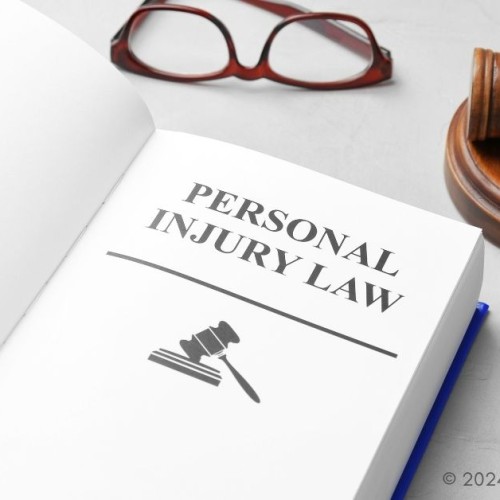When you hear the term “blood poisoning,” you know you’re dealing with something serious. Sepsis is a life-threatening condition that develops when a body overreacts to an infection. When it comes to infectious diseases, sepsis is one of the most deadly around. And it’s entirely too common in nursing homes.
Nursing home residents often have a myriad of health conditions and concerns, making them more vulnerable to developing sepsis due to their weakened immune systems. Left undetected, sepsis can lead to septic shock, which is often fatal. While there is no way to 100% prevent or protect from sepsis, our elders’ risk of developing the disease increases if they are suffering abuse or neglect from nursing home staff.
Understanding Abuse and Neglect in US Nursing Homes
The healthcare industry across the US is facing a massive staffing crisis. The cost of education and the poor pay most professionals face have left fewer and fewer students entering the field, and practices are scrambling to keep up. Nursing homes are no different.
Many nursing homes across the nation are understaffed, and their nurses are overworked. Tired and stressed employees are at higher risk of making mistakes or snapping at and venting frustrations on residents.
Additionally, some nursing homes are facing systemic issues such as poor hiring practices and a lack of training for new employees. Accountability and documentation also play a role in miscommunication between shifts, which can lead to unintentional neglect of a resident’s needs.
Our elders face risks of financial, sexual, physical, and emotional abuse, as well as neglect or abandonment. This can happen anywhere, from anyone, and can have lasting effects on their health and mental well-being, but residents with cognitive issues like Alzheimer’s face greater risks. When their health and needs are neglected, it’s all too simple for sepsis to sneak in. And if staff don’t know what to look for, it can quickly turn deadly.
Signs and Symptoms of Sepsis
Early detection of sepsis is crucial. The best prevention is to avoid infections of any kind, which is all but impossible in people with weakened immune systems and mobility. Some symptoms to watch for when detecting sepsis are:
- Rapid heart rate
- Fever or abnormally low body temp
- Difficulty breathing
- Confusion or disorientation
- Abdominal discomfort or pain
- Urinary Tract Infection symptoms
- Increased white blood cell count
Ideally, nursing home staff should be trained to recognize these symptoms in order to seek treatment as soon as possible. Even a delay of a few hours to administer antibiotics or other measures can significantly increase the resident’s risk of death.
Tips for Preventing Sepsis
Nursing homes can take steps to prevent sepsis, such as:
- Effective infection control practices
- Timely diagnosis and treatment of infections
- Monitoring residents closely
- Training staff on sepsis awareness
Prompt antibiotic treatment is critical in treating sepsis, as well as supportive measures like fluids and oxygen. Proper hand hygiene and PPE can help prevent the spread of infections, and early detection of infections can help mitigate the body’s response.
What to Do if You Suspect Nursing Home Negligence or Abuse
Suppose your loved one develops sepsis or goes into septic shock while in the care of a nursing home. You have reason to suspect negligence, potentially even abuse. Consult with the medical team who treated your loved one and get their professional opinion. If they echo your concerns, gather copies of medical records, notes from the doctor, and any photos of your loved one’s injuries.
Your first step is to ensure your loved one is properly cared for during their recovery. Make a schedule with family and friends to stay with your loved one during their recovery to ensure they are properly cared for. You may even decide to admit them to a hospital or move them to a different care facility. Next, you need to find a qualified sepsis lawyer. Take the documentation you’ve managed to gather and set up a free consultation to discuss your case. Your lawyer will give you advice on gathering evidence and dealing with the nursing home at fault, and they’ll help you through the legal process.
The first step in seeking legal justice is gathering evidence and documentation. You have a head start with the medical records, and your lawyer may reach out to medical experts for testimony. Next, you need to file claims with state agencies like your local Department of Aging and Adult Protective Services. These organizations will pursue criminal investigations against the nursing home or staff member responsible for your loved one’s pain.
Next, you’ll file a civil claim against the nursing home or staff member. Civil claims allow families to seek justice and compensation regardless of any criminal cases. When your loved one suffers from sepsis, they will gather expensive medical bills and, in worst-case scenarios, funeral and burial costs. Your lawyer will help you calculate damages to seek a fair number from those responsible. With luck, you’ll settle outside of court. Otherwise, trust your lawyer to guide you through the lawsuit and find closure by holding the people who failed your loved one accountable and forcing them to face consequences.
We are not doctors and this is in no way intended to be used as medical advice and we cannot be held responsible for your results. As with any product, service or supplement, use at your own risk. Always do your own research before using.
We are not lawyers and this is in no way intended to be used as legal advice . We cannot be held responsible for your results. Always do your own research and seek professional legal help.






